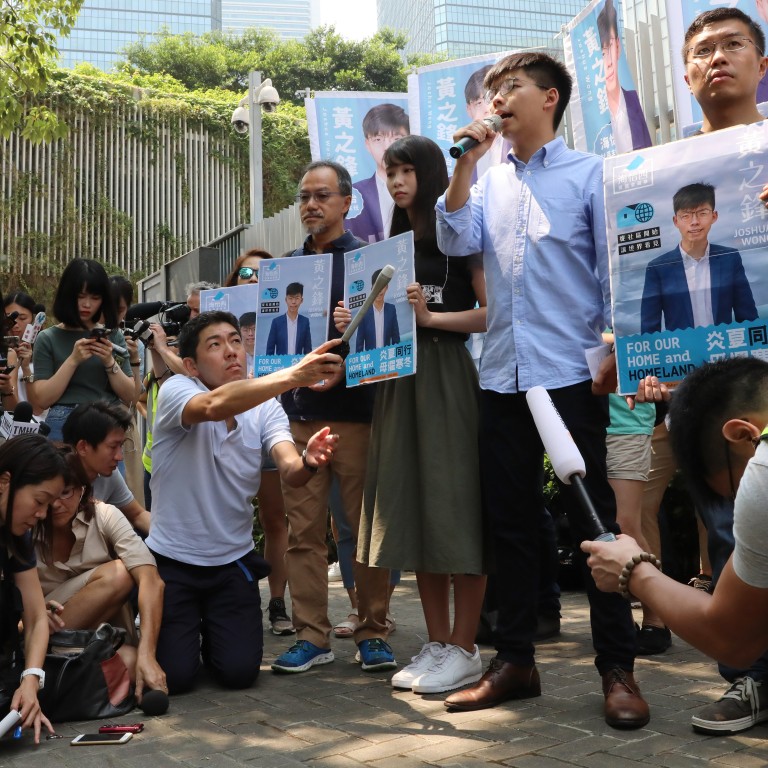
Hong Kong’s protests have reshaped the city, and the November district council elections will show how much
- Tolerance of violence and distrust of police are not normal for Hong Kong, yet that’s the city’s present situation. Barring sudden change – or cancellation – this suggests the next elections will see a stark shift towards the pan-dems
The district council elections scheduled for November 24 are shaping up to be the most significant in a generation. The results will be closely scrutinised by the Hong Kong government, Beijing’s liaison office and the central government in the capital.
Depending on the outcome, they may significantly impact the political life expectancy of Chief Executive Carrie Lam Cheng Yuet-ngor.
To understand why, we need to go back to the results of the last set of elections in 2015. They took place in the aftermath of the Occupy movement and were a resounding success for pro-administration forces. Over 1.4 million people voted (a turnout rate of 47 per cent) for the 431 members (for the first time, all elected) and ended with government-friendly parties controlling all 18 district councils.
By securing a majority of members in both the New Territories and the urban area, the same forces could choose from among themselves all 117 representatives on the Election Committee which elected the chief executive in 2017.

The big new factor, of course, is the furore originally generated by a proposal to overhaul Hong Kong’s extradition regime. Although the amendment bill itself is now due to be withdrawn, the passions stirred up still run hot.
Hong Kong’s unrest is a vote of no confidence in the pan-democrats
It seems likely that a large part of this increase is related to the ongoing protests. The increase will lead to an additional 700-1,000 new voters per constituency. This factor by itself could be enough to change the result in marginal seats. If it is allied to an upsurge in turnout because of heightened political interest, say to over 50 per cent, then we could be in for quite an abrupt turnaround in fortunes.
Election bans must be legally justified
Traditionally, voters at the district level have been quite conservative and do not normally approve of the obstructionist tactics often employed by pan-democrats, like the disruption of last week’s policy address. And there is a particular aversion to violence. However, these are not normal times.
Polling by Chinese University’s media faculty on behalf of another newspaper showed over 80 per cent of respondents supported an independent commission of inquiry to examine all aspects of the extradition saga. The government keeps ruling this out, which may count against those parties perceived as government supporters.
Another striking finding: over 70 per cent did not trust the police, so repeated appeals for restoring law and order are not having their usual effect.
One of the most notable aspects of public sentiment has been the tolerance so many members of the public have for the protesters’ violence and vandalism. There have been many instances of residents booing the police, or opening doors to help protesters avoid arrest.
I queried an election coordinator of the pan-democratic forces for an explanation on the reasons for this striking departure from normal public attitude. His interpretation was that the government ignored the peaceful march on June 9, but the students stepped in to save the day by blockading the Legislative Council building on June 12 to prevent the bill’s enactment. Many thought the police’s use of force on that day was excessive.
It cannot be confirmed that his reading of the public mood is correct or, if it is, that it will endure until election day. “A week in politics is a long time”, as Harold Wilson supposedly observed more than 50 years ago, and we have almost five to go.
There is always scope for a major incident to swing public opinion at the last minute – what Americans call the “October surprise”. Given the recent escalation of violence, it is regrettably possible to envisage the death of a police officer, a protester or even a passer-by – or a high-profile suicide.
No doubt there will be many other opinion polls in the coming weeks to try to monitor shifting public mood. But, on November 24, we will have the only poll that really matters: the one at the ballot box.
Mike Rowse is the CEO of Treloar Enterprises


